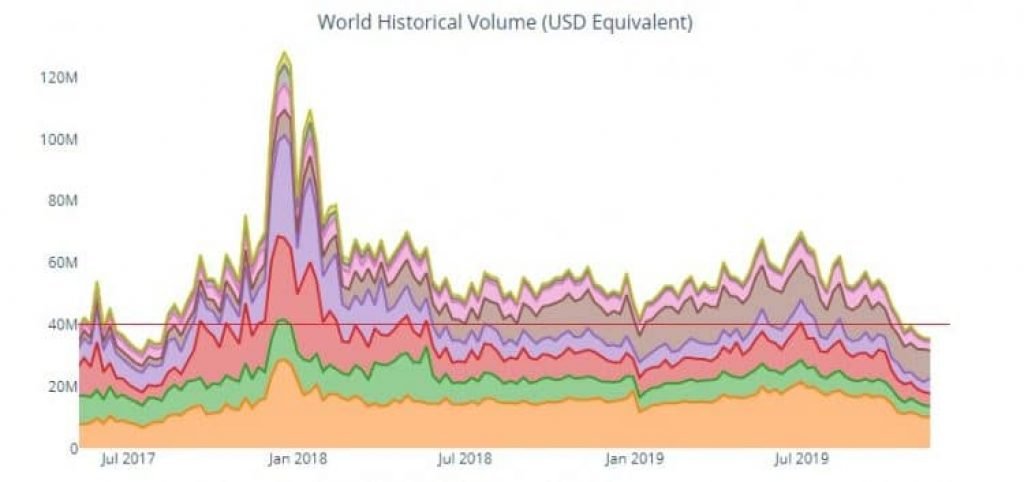2019-3-1 01:51 |
A 51% attack means that 51% of the ‘computer processing power’ used to verify transactions is controlled by one entity, and once this number (51%) has been reached, they can create a new ledger (blockchain ‘fork’ basically) so that they can double spend their own coins (among a few other capabilities). So basically, if there was an election and you control 51% of the vote, you decide who gets elected.
If you are curious what an attack like this costs to undertake on any blockchain, there is an interesting website that calculates exactly that. You can basically rent hashing power from NiceHash to complete an attack and the website tracks the cost for that rent.
The calculations are based on renting hashing power from NiceHash (explained in more detail here). As noted on the website, the top coins are safe from this, and the real problem occurs for smaller coins where NiceHash has more than enough hashing power to complete an attack.
It is very surprising that it is possible to rent enough hashing power for many of the smaller currencies, which makes you question the use of PoW for smaller coins.
The numbers this websites shows are staggering: for example, Verge has a 88 million dollar market cap and can be attacked for 100$ an hour or 2500$ for an entire day. By using a simple mining pool like NiceHash.
And Verge already knows the feeling – it suffered the attack two times in its short history. If you are in a mood – here is our XVG price prediction for the future.
With this much hash power you can basically rewrite the whole chain of a smaller cryptocoin. This makes it possible for hackers to send their coins to exchange, exchange the coins for another coin, withdraw those coins, ewrite the blockchain back to the original and now hacker has the old coins and the coins he stole.
Most of the smaller coins networks rely on the benevolence of miners. They rely on miners playing nice which means the security model is broken right now. The whole point of crypto is we shouldn’t need to trust anyone.
Another coin that has a $57 million market cap, Electroneum, can be attacked and reorganized for $1800 per hour or $44k per day. A bit more money than for Verge, but still a low number for a moderately serious attacker. Here is our ETN price prediction for 2019 and beyond.
This is where importance and advantages, among many other, of Bitcoin network lie, it is slow and archaic, but it’s the historical ledger of crypto and the most difficult to attack. – $7.5 million per day. Relative to other coins, that is huge but surely a pocket change for a state or institutional adversary that would want to attack bitcoin. This raises a question of viability of PoW model but that is beyond the scope of this article.
The post Absurdistan: For $2.5k per day, you can attack Verge (XVG). For $44k you can shut down Electroneum (ETN) as well. appeared first on CaptainAltcoin.
origin »Bitcoin price in Telegram @btc_price_every_hour
Well (WELL) íà Currencies.ru
|
|

























